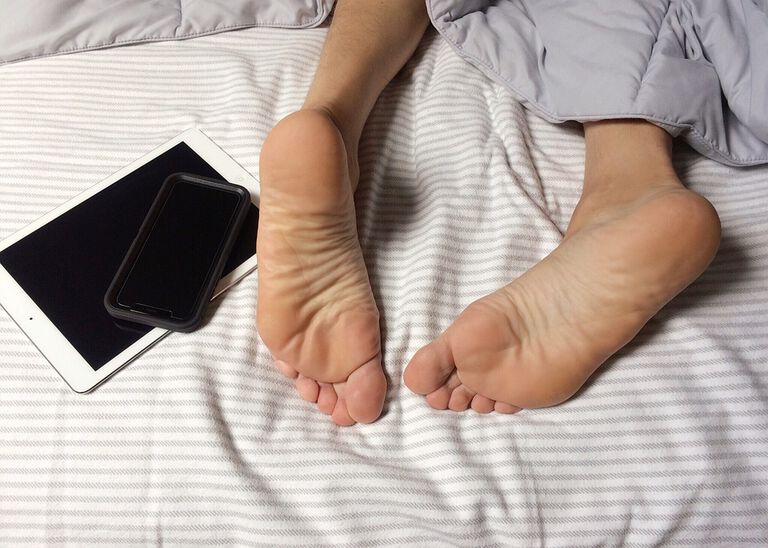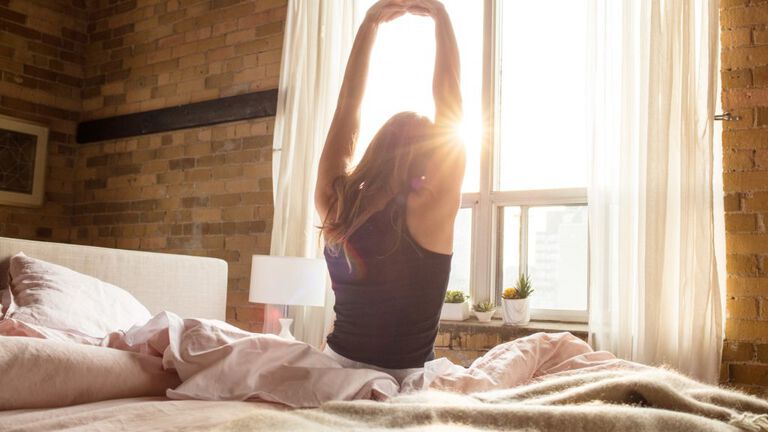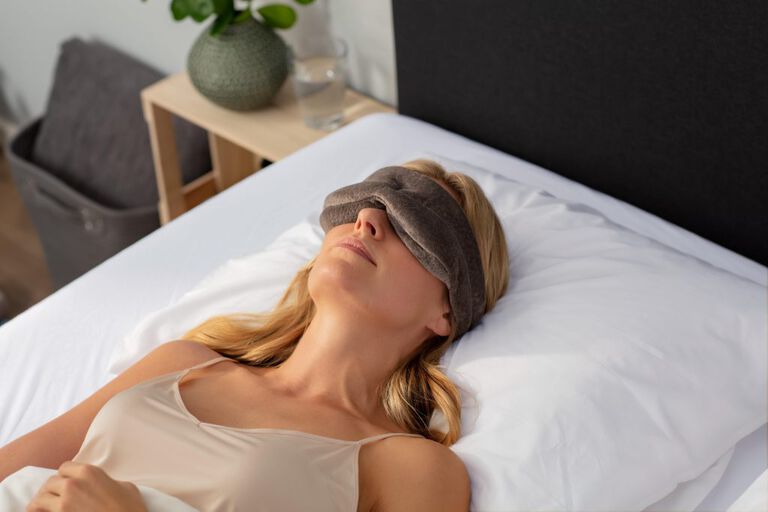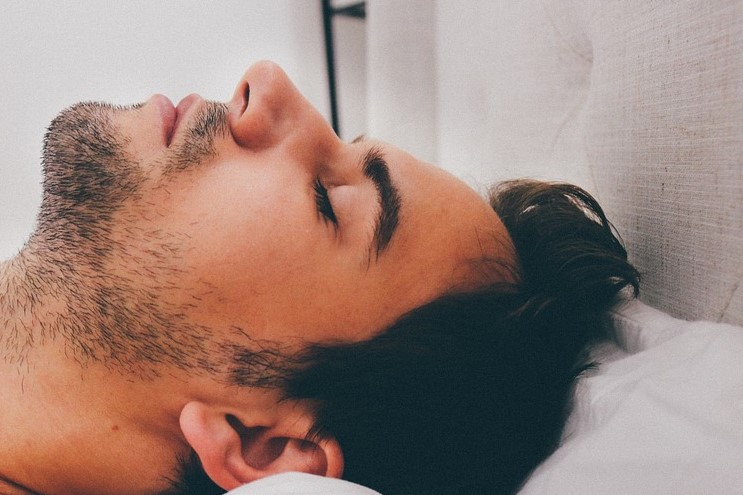IS YOUR SCREEN TIME AFFECTING YOUR SLEEP?
Our evening routines have changed significantly over the years. Prior to the invention of electricity, we were much more likely to go to bed when it got dark and wake up when it got light, following our body’s circadian rhythm. Today, we do things somewhat differently, spending our evenings bathed in artificial light.
Not only do we sit in brightly lit rooms of an evening, it’s also likely we are surrounded by artificial light from a variety of screens. We often use screen time to relax, whether that means catching up on our favourite shows on Netflix, scrolling through Facebook, or catching up with friends via social media, email or video chat.

Unfortunately, all this screen time may be having a detrimental effect on not only on our sleep, but on our health as well. In this post, we’re going to take a closer look at how electronics can cause disrupted sleep by focussing in particular on blue light and sleep.
HOW ELECTRONICS AFFECT SLEEP
Every night, the body readies itself for sleep, making it easier for us to fall asleep when we go to bed. However, exposure to light can throw out the body’s biological clock – its circadian rhythm – by preventing it from creating melatonin and making us sleepy. That means, when we do go to bed, we may lie awake, unable to sleep because the body is just not ready for it.
So often, we spend our evening hours looking at a screen. Some people even take their screens to bed with them, responding to emails on their tablet, watching television in bed, or reading a book on their phone. What’s the solution? Reducing screen time at night could help us sleep better, allowing us to fall asleep faster, and enjoy less disrupted sleep through the night.
BLUE LIGHT AND SLEEP
Recently, there has been a lot of research into the effects of blue light, as this is the type of light our screens emit. During the day, blue light can be beneficial, helping to improve attention levels, reaction times and mood. However, blue light is also shown to be most disruptive at night. While any light can suppress melatonin production, blue light at night does so more powerfully.
According to a Harvard research study, exposure to blue light vs. green light showed that blue light suppressed melatonin for about twice as long as green light, and shifted circadian rhythms by twice as much (3 hours vs. 1.5 hours)*. Another study compared the effects of blue light and red light to reveal exposure to blue light cut sleep time by about 16 minutes, and resulted in more sleep disruption through the night**.
Last year, the results of a huge study*** of the sleep habits of 91,000 people in the UK showed that those who used their mobile phones at night were more likely to have poor sleep hygiene, which could have a detrimental effect on their mood and wellbeing. The study’s senior author also noted the effect those abnormal sleep patterns had on depression and bipolar disorder.
HOW BLUE LIGHT MAY AFFECT YOUR SLEEP
Based on findings from a study by Harvard researchers****, here are four important ways blue light can affect your sleep.
- It will disrupt your circadian rhythm, which affects everything from your metabolism and your mood, to your risk of developing diabetes and even cancer.
- It will take you longer to go to sleep by suppressing melatonin levels and making you more alert when you need to wind down.
- It will decrease your REM sleep, which is essential for the restoration of your mind and body, not only working to solidify memories, but also improving your creative and problem-solving skills.
- It will make you feel more tired and less alert when you wake up.
IMPROVE SLEEP WITH A DIGITAL DETOX
With screens everywhere – and proof of their detrimental effects well documented – it’s understandable why some people are choosing to go on a ‘digital detox’. For some this may be quite easy, while for others it could be more of a challenge. If you want to know how to stop using your phone before bed, here are some things you can try.
Start by making your bedroom a space that is dedicated to sleep. No televisions, no laptops, no tablets and no phones. Charge your phone in another room, and use a traditional alarm clock if you need to. Use dim red lights for night lights, and create a Zen, comfortable space that leaves stress at the door.
To improve your quality of sleep, introduce a sleep routine and avoid looking at screens two to three hours before bed. To relax, you may want to listen to music or a podcast, read a book or do some yoga. If you do have to use your phone, make use of a screen time app, which switches the screen’s colouring from blue to yellow tones.
You may also want to expose yourself to lots of bright light during the day, which should help your body’s circadian rhythm to regulate itself. If you have to work a night shift or use a lot of electronic devices at night, blue-light-blocking glasses could help.
* https://www.health.harvard.edu/staying-healthy/blue-light-has-a-dark-side
** https://www.sciencenewsforstudents.org/article/evening-screen-time-can-sabotage-sleep
*** https://www.thelancet.com/journals/lanpsy/article/PIIS2215-0366(18)30139-1/fulltext
**** https://www.pnas.org/content/112/4/1232
Feel it for yourself
Find a TEMPUR store or Stockist and try out our range of mattresses for yourself

SIGN UP FOR THE NEWSLETTERS!
By signing up, you agree to receive TEMPUR Australia’s products, services, news, reviews and promotions by emails. For more information on how we process your personal data, please refer to our Privacy Policy.



